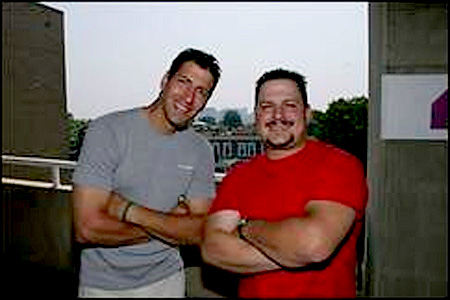Activists hope interest isn’t fleeting Live 8 is a start, but where to from there?

By GARY SOULSMAN / The News Journal
Last month, the brothers threw a charity barbecue in Wilmington’s Alopocas neighborhood that raised about $2,600 for children in Sudan.
Today, Gordon will attend the Philadelphia Live 8 Concert. He hopes world leaders at next week’s G8 summit in Scotland will notice the outpouring of sympathy.
“I’ll be there to be part of something big,” said Gordon. “My question is, where does the effort to help go from here?”
Today’s Live 8 in Philadelphia is one of nine concerts around the globe in which pop and rock stars will perform. About 1 million people are expected in the City of Brotherly Love. Organizer Bob Geldof and other sponsors hope that huge crowds will help to pressure world leaders to double aid to Africa and provide debt relief.
The effort already has had some success. This week President Bush asked Congress for new African aid: $1.2 billion over five years to fight malaria, $400 million over four years to improve education and $55 million for programs to combat sexual abuse and violence against women.
“Bob Geldof’s effort has worked to some extent,” said Rita Kiki Edozie of the University of Delaware. She teaches courses in international affairs.
Many wealthy nations also agreed after Live 8 was announced to erase $40 billion in debt that 18 African nations owe.
The U.S. agreed to the debt relief plan, but U2’s Bono wants America to do more. He is pushing the ONE Campaign, which asks the U.S. to raise aid to Africa by 1 percent. Currently, the U.S. spends $4.3 billion a year on Africa.
Sub-Saharan Africa is the world’s poorest region, according to Bono and activist Bobby Shriver. Seventy percent of its people live on less than $2 a day. 200 million go hungry every day. This year at least a million Africans, most of them children, will die of malaria and two million will die of AIDS.
And yet, global artists seem to have more political clout than the African leadership, Edozie said. Performers are able to use their celebrity to help. Live 8 allows them to use their fame as more than gesture politics.
At the same time, religious activists, such as evangelical pastor Jim Wallis, see momentum for ending poverty. He calls it the new civil rights movement, visible in Delaware in efforts such as the DelGiornos’ barbecue.
Wallis, author of “God’s Politics,” last month helped sponsor a prayer rally on poverty at the National Cathedral in Washington.
More than 1,000 people strategized and prayed about how to end poverty. The group included Hindus, Buddhists, Muslims, Christians and Jews. Rick Warren, author of “The Purpose-Driven Life,” and evangelist Billy Graham recently agreed to help.
“Thankfully, we’re all recognizing that we have the will and the means to help the three billion people who live on less than $2 a day,” said Wallis.
Annabelle C. Kressman, of Wilmington, went to Wallis’ lecture last week at First & Central Presbyterian Church in Wilmington. She also donated a $145 blue suede handbag for a silent auction at the DelGiornos’ barbecue fund-raiser.
“Many people in America have so much,” she said. “If everybody did something, it would make a difference.”
She’s been among those hoping President Bush would focus more on helping the poor, especially in Africa.
Stephanie Nyombayire has a similar hope. In November, she and a handful of Swarthmore College students founded the Genocide Intervention Fund to raise awareness about genocide in Darfur, in Sudan.
More than 400,000 people have died there, and more than 2.5 million people have been forced out of their homes. About 500 people die each day, she said.
A Rwandan native, the sophomore lost 100 of her family in the 1994 genocide there.
Nyombayire and fellow students plan to raise money for an international force that is privately financing a U.N.-mandated African Union peacekeeping mission. The goal is to raise $1 million. About $200,000 has been collected so far, she said.
“Darfur was declared a genocide by Congress, but it has not been getting the attention with everyday people that it deserves,” she says.
That lack of awareness makes the concept of using concerts to publicize the continent’s problems important, said Richard E. Mshomba, of Tanzania, a professor of economics at La Salle University.
“Let’s not pretend that people are going to learn a lot,” he said. “But the average person is so busy, if they learn even a little it’s a plus.”
The average income in the United States is about $34,000 a person. “In Africa it’s $500 to $1,000 a person,” he said.
Questions remain about how much a public movement, built around rock concerts, can change the lives of everyday Africans, Edozie said. American foreign policy has focused more on the Middle East than Africa.
The public has a short attention span, and Americans often have a surface understanding of world issues, said Edozie, originally from Nigeria.
Twenty years ago, Geldof’s Live Aid concerts raised money for African famine relief. “That effort may not have been political enough or long-lasting enough,” she said.
She plans to attend the Philadelphia event and wants to support the non-profits that will be handing out information about Africa.
“I want to see if we can really get people talking about the issues,” she said.

